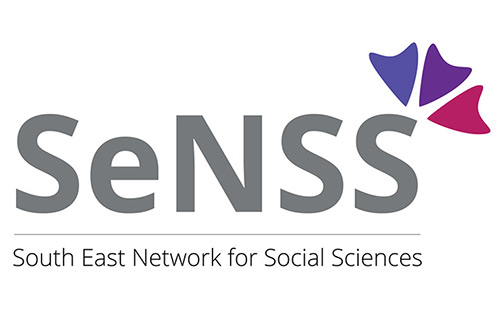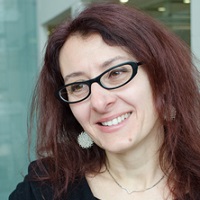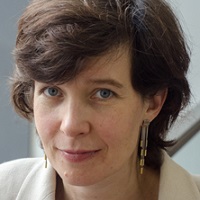Your Economics PhD/MPhil programme will focus on rigorous economic and econometric modelling and its practical applications in the private and public sectors.
Key information
| Starting date | Deadline for application |
|---|---|
Duration
Affiliations


City, University of London is part of the South East Network for Social Sciences, an ESRC Doctoral Training Partnership.
Economics Postgraduate research degrees PhD/MPhil course Overview
Our Economics research programme will develop your knowledge of advanced economic theory and econometric methods. Enabling you to produce pioneering research papers.
We provide expert academic support and supervision alongside a commitment to your economics research. You can apply for funding to attend specialised training courses and research conferences.
Most research undertaken here at City involves internal and external collaboration. You will join one of our research groups in the following:
- Financial Economics
- Health Economics
- Behavioural Economics
- Political Economy
- Decision Making and Behavioural Economics
- Competition and Regulation
We are part of the South East Network for Social Sciences (SeNSS) Doctoral Training Program Partnership. A consortium of ten leading UK universities offering cutting-edge social science research, training and collaborative projects.
Structure
All research students are initially registered as MPhil students. Students can study both full-time and part-time. Full-time students will be required to take four taught modules in their first year. This includes Microeconomics, Macroeconomics, Econometrics, and one elective module.
Microeconomics, Macroeconomics, and Econometrics modules are jointly taught by City, Birkbeck, and Royal Holloway.
The upgrade to the PhD will be conditional on passing the compulsory modules. Part-time students will be expected to pass these modules during their first two years.
Course Outlines
Econometrics
- ARMA and VAR processes
- Kalman filter and Markov switching processes
- Financial econometrics topics
- Models for discrete and limited variables
- Panel data models
Macroeconomics
- Fiscal and monetary policies
- Bayesian Estimation of DSGE Models
- Simulation and estimation of models using Dynare Data, parameter, and model uncertainty
- Macroeconomics and Medium Run
Microeconomics
- Individual decision making
- Demand, production, choice under uncertainty
- Equilibrium and its basic welfare properties
- Game theory
After 18 months on the programme you will be upgraded to PhD subject to satisfactory progress and approval by the Research Committee. In order to get upgraded to PhD, you need to demonstrate progress on your dissertation by submitting a written piece of academic staff.
Following the Upgrade, your progress on the dissertation will be evaluated annually. Full-time (Part-time) students will be expected to complete their dissertations within four (seven) years from the date of registration. A dissertation usually consists of three chapters / papers.
For full details about the City PhD programme structure, please see the Guide for Research Students.
Requirements
Entry requirements
Applicants should have a track record of high academic achievement as demonstrated by at least a 2.1 honours degree and a merit-level Master’s degree in a relevant subject (or international equivalent).
English requirements
Students whose first language is not English should hold one of the following qualifications:
A degree from a UK university or from the Council for National Academic Awards.
A degree from an overseas institution recognised by City as providing adequate evidence of proficiency in the English language, for example, from institutions in Australia, Canada or the USA.
An overall score of 6.5 in the English Language Testing System (IELTS) with a minimum of 6.0 for each subtest.
For more information see our English language proficiency requirements at City.
Visa requirements
- If you are not from the European Economic Area / Switzerland and you are coming to study in the UK, you may need to apply for a visa or entry clearance to come to the UK to study.
- The way that you apply may vary depending on the length of your course. There are different rules for:
- Students on courses of more than six months
- Students on courses of less than six months
- Students on a pre-sessional English language course.
For more information see our main Visa page.
Fees and funding
Full-time Home/UK:£5,110 per year
Part-time Home/UK:£2,560 per year
Full-time International:£13,630 per year
Part-time International:£6,810 per year
Fees for doctoral candidates are charged annually and cover registration, supervision and examination.
Fees are subject to review each year and may vary during your period of registration. Where applicable, fees for City's programmes will be subject to inflationary increases in each academic year of study commencing in September. Our policy for these increases is set out in our terms and conditions of study.
We will confirm any change to the annual tuition fee to you in writing prior to you commencing each subsequent year of study (where applicable).
Support for PhD study
Prospective students are encouraged to explore doctoral Grants and funding opportunities such as:
- SeNSS Doctoral Training Partnership
- The National Institute of Health Research offers doctoral fellowships in health economics. These fellowships enable individuals with the potential to become future health research leaders to undertake a PhD in an area of NIHR research.
- Research Council studentship awards, if available.
Our bursaries are non-repayable sums of money granted by the University, usually based on need.
Our loans are repayable sums of money granted by the University or other body.
Our scholarships are when the University pays towards your Study fees. You may also be eligible for further funding.
Postgraduate Doctoral Loans
The Government has introduced a new Postgraduate Doctoral Loans scheme which can provide a loan of up to £25,000.
This will be over three years to support study for a doctoral degree.
A Postgraduate Doctoral Loan can help with course fees and living costs while you study. It can be used alongside any other forms of support you may be able to receive.
For more information, please see our Postgraduate Doctoral Loans page.
Additional expenses
Some of our degrees may involve additional expenses which are not covered by your tuition fees. Find out more about additional expenses.
Academic support
City has a well-established structure and processes to support your research.
Supervision
Your main contact person within the Department will be your principal supervisor whom you will meet on a regular basis. You will also be allocated a secondary supervisor(s).
Your Supervisor will provide guidance to in the writing of the dissertation. They can also assist with the acquisition of additional training, presenting at conferences, searching for jobs, and other matters.
Research support
The Department of Economics is committed to providing support to our research students for the facilitation and dissemination of their research. This includes presenting at conferences, payments to experimental subjects, attending training courses, and purchasing software (subject to approval).
Training
Additional doctoral training opportunities for postgraduate research students are offered by the School of Policy & Global Affairs and the South East Network for Social Sciences Doctoral Training Partnership.
Research students may take modules in this Programme free of charge if they are relevant to their research.
The City Doctoral College offers City-wide research and teaching related activities, which contribute to research student development.
Research Environment
The Department of Economics comprises of close to 30 academic staff members, visiting lecturers, and undergraduate, postgraduate and research students.
Our academic staff members are experienced economists. They in addition to teaching, undertake research and lead research projects in a wide range of topics. They also act as consultants to public institutions and private companies.
You can approach all staff members, not only your supervisors, to talk about your research or career planning.
Department seminars
The Department of Economics runs two active seminar series – one external and one internal. Both seminar series run in Autumn and Spring terms. The attendance of both seminar series by full-time research students is compulsory, and active participation in discussions is encouraged.
How to apply
Preliminary Enquiries
When considering potential applicants, we attach great importance both to the applicant's academic profile. We also consider the fit between their research proposal and the expertise of the academic staff.
Before submitting an application, you may want to approach an academic staff member to enquire if they would be willing to supervise you. Send them your CV, degree transcripts, and Research Proposal in your introductory email. If the academic staff member expresses interest in supervising you, indicate so in your application.
Applications
We accept applications until the end of June for entry in October. To apply, you should submit the following:
- Your research proposal.
- Reference letters from at least two academic referees.
- Copies of your degree transcripts and certificates (originals or certified copies). If your application is successful we will need to verify the original hard copies before a final offer is made.
- Proof of your English language proficiency (if English is not your first language).
Please note that we will not consider incomplete applications. You can find general information about the applications at City here.
For further information please see how to prepare your research proposal.
If you have any questions about the application process or scholarships, please contact the Director of PhD Programme Dr Xiaogang Che.
For more information please see How to prepare your application at City.
For further application enquiries please contact our PGR enquiries team.
Find a supervisor
See our full list of academic staff and potential supervisors in Department of Economics.



